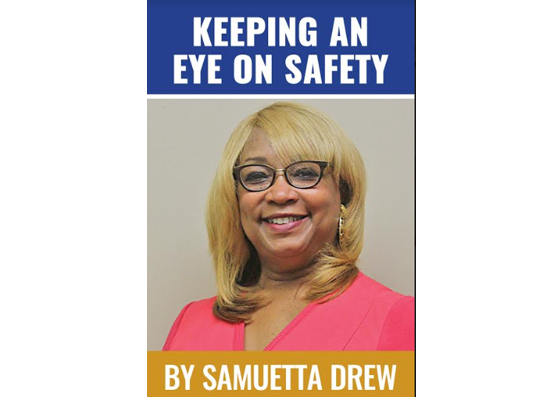Samuetta Hill Drew
Prior safety articles in this series shared scientific findings which concluded the importance of wearing a face covering/mask in the fight against the coronavirus COVID-19. One article reviewed the current Jefferson County face covering/masks order which is in effect until further notice. Many cities and counties around our state and country are issuing similar types of mandates for their citizens as well.
With all this attention on face coverings/masks, the average person can become confused about what type should they wear. Many retailers and local merchants have begun selling masks online, in their stores and on street corners. Most cable shows like CNN, MSNBC, etc., along with local news shows, are doing stories on the different governmental face coverings/masks orders.
So, clearly some orders are in place, but how does one safely comply? How does one determine the most effective masks for themselves and their love ones? This article will help shine some light on how to select the best face covering/mask for you whether you are a healthcare professional, first responder or regular citizen. We will review their effectiveness and limitations in our quest to stay safe and in compliance.
Surgical Mask
Surgical masks are often referred to as medical masks. It is a loose-fitting disposable mask. Its primary purpose is to protect other people from the wearer’s respiratory droplets, splashes and sprays that may contain germs. This mask may protect others by reducing exposure to the saliva and respiratory secretions of the mask wearer.
One of the basic limitations with this type of masks is that its loose fit offers no facial seal. They do not reliably filter enough smaller airborne particles to count as respiratory protection. One study found surgical masks can filter about 60 percent of smaller, inhaled particles where the N95 would filter 95 percent of these particles (these types are preferred for healthcare workers and frontline workers who desperately need them).
Paper Mask
The primary purpose for these types of masks is to filter larger nuisance dusts from the air, such as pollen or sawdust, which are much larger than virus particles. Like surgical masks they do offer protections for the wearer and those in close contact with the wearer.
The major limitation is that these masks were made to filter materials, but not designated to filter inhaled particles as small as viruses and do not form a face seal.
Homemade Cloth/Face Mask
While surgical and N95 masks are in short supply and must be reserved for health care providers, cloth masks are easy to find and can be washed and reused.
They provide some barrier protection from large respiratory droplets expelled by other people. One of the most important factors is they reduce the spread of respiratory droplets emitted by the wearer. In one study, coughing through a cotton mask significantly reduced the amount of virus particles transferred to a test surface.
Having everyone wear a cloth mask helps reduce the spread of the coronavirus COVID-19 by people who have it, but do not realize it.
As stated about other masks, these also do not form a tight seal to the face and do not reliably filter small inhaled particles. Scientists’ attempts to evaluate the effectiveness of cloth masks to filter small particles showed a wide range of results: cotton T-shirt (7 percent), shop towel (19 percent), and coffee filter (49 percent). Material types and thickness such as cotton, denim, canvas, fit to the face (with flexible nose bridge) and use of an internal filter (e.g. coffee filter) are a few of the variables used in the study to determine effectiveness.
While these alternative mask options are far from perfect, the overall evidence shows that surgical masks, paper masks, cloth masks and other facial coverings all provide the wearer some protection against the virus. It forms a protective barrier to having particles land on the mouth and nose. As stated last week, to help Keep an Eye on Safety during this pandemic, social distancing, hand hygiene, coughing etiquette and other precautions should be used in conjunction as well.



